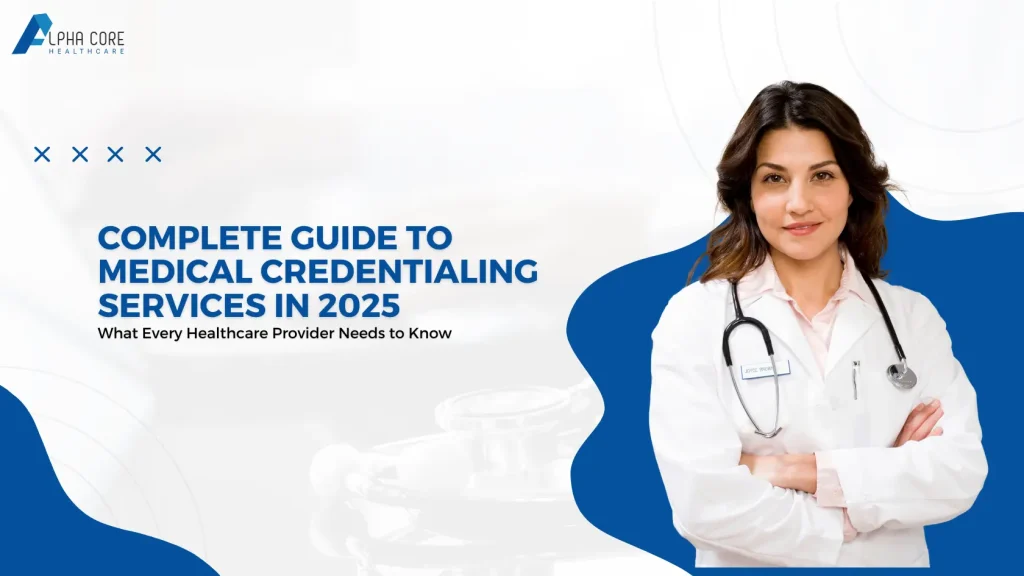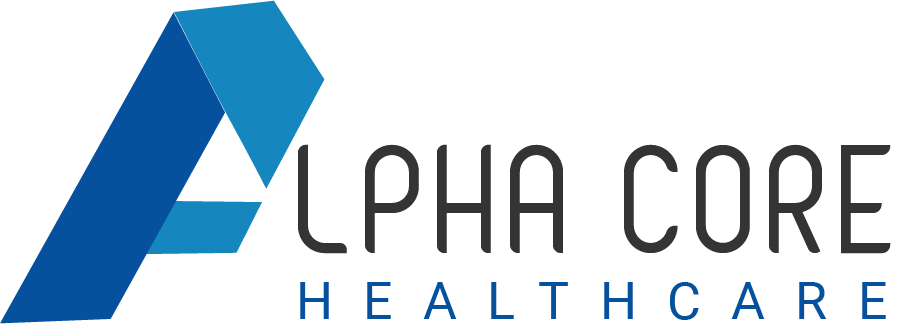Complete Guide to Medical Credentialing Services in 2025: What Every Healthcare Provider Needs to Know
- Published: June 16, 2025

Medical credentialing remains a cornerstone of healthcare compliance and quality assurance in 2025. As the industry evolves with regulatory updates and payer requirements, medical credentialing services have become indispensable for providers and healthcare organizations alike.
In this guide, we’ll walk through what medical credentialing is, why it matters, the process, costs, and how to choose among the top-rated credentialing companies—with a special focus on what’s changing in 2025.
What Is Medical Credentialing?
Medical credentialing is the process of verifying a healthcare provider’s qualifications—such as education, training, licenses, certifications, and professional experience—to ensure they meet the standards set by hospitals, insurance networks, and regulatory bodies.
This process is crucial for:
- Ensuring patient safety
- Preventing fraud
- Gaining insurance reimbursements
- Maintaining compliance with state and federal laws
In 2025, the need for healthcare credentialing services has expanded due to stricter payer audits and faster digital verification tools.
Why Medical Credentialing and Insurance Credentialing Services are Important
Medical credentialing and insurance credentialing services complement each other. While credentialing confirms the qualifications of a provider, insurance credentialing ensures that the provider is credentialed to receive insurance reimbursement.
Credentialing is required for:
- Physicians
- Nurse practitioners
- Dentists
- Behavioral health providers
- Chiropractors
- Any allied health practitioner billing insurance
Not becoming credentialed with insurance panels means you won’t get paid—no matter how qualified you are.
Key Benefits of Using Professional Medical Credentialing Services
Outsourcing to a Medical Credentialing Company in 2025 can save time, reduce errors, and improve approval speed. Here’s how professional medical credentialing services for physicians and providers help:
- Faster application approval
- Accurate and complete documentation
- Fewer delays or denials
- Ongoing monitoring and re-credentialing
- Compliance with ever-changing regulations
Step-by-Step Medical Credentialing Process in 2025
Step 1: Information Collection
Collect all needed documents, including:
- Medical license(s)
- DEA registration
- Malpractice insurance
- Board certification
- CV and work history
Step 2: Primary Source Verification
Issuing organizations are contacted by the credentialing service to verify the credentials.
Step 3: Application Submission
Applications are forwarded to:
- State licensing boards
- Insurance networks
- Hospital privileging bodies
Step 4: Follow-ups and Corrections
Credentialing specialists address requests for clarification or additional documents.
Step 5: Approval and Enrollment
After approval, the provider is enrolled in insurance panels and cleared for billing.
Who Needs Physician Credentialing Services?
If you are a physician, nurse practitioner, or group practice billing insurance companies, you need physician credentialing services.
Key reasons:
- Required by CMS (Medicare/Medicaid)
- Required by private insurance networks
- Needed for hospital privileges
- Enhances provider credibility
Many best medical credentialing services offer packages tailored to physicians, including multi-state licensing and CAQH profile management.
Provider Enrollment and Credentialing Services: What's the Difference?
Many providers confuse provider enrollment with medical credentialing. Here’s the distinction:
- Medical Credentialing: Verification of professional qualifications
- Enrolling with Paying Insurances: Getting enrolled with insurance payers to be included in their network list
Most top credentialing companies provide provider enrollment, which is a bundled solution along with the credentialing service, for solo and group practices.
Local Credentialing Assistance: Delaware & Multiple-State Medical Credentialing Services
Health care providers seek Medical Credentialing Services Near me, especially local assistance, to find the proper help. Some of the states have specific regulations, like that of Delaware.
If you’re based in the state, look for firms that specialize in medical credentialing services in Delaware to ensure compliance with:
- Local medical boards
- State-specific payer requirements
- Medicaid-specific enrollment timelines
How to Choose the Best Medical Credentialing Services in 2025
With so many medical credentialing companies on the market, here are criteria to choose the right one:
- Experience in your specialty (e.g., behavioral health, radiology, family medicine)
- Transparent pricing and no hidden fees
- Real-time status tracking via an online dashboard
- Dedicated credentialing manager
- Reputation – Check for top-rated reviews on Google and healthcare forums
Look for agencies offering top rated credentialing companies status or endorsements from provider networks.
Best Insurance Credentialing Services for Multi-Specialty Clinics
Multi-specialty clinics often need the best insurance credentialing services to manage complex needs across specialties. In 2025, these firms should offer:
- Multi-specialty credentialing under one platform
- Batch enrollment submissions
- Digital document storage
- Compliance alerts and renewal reminders
This is especially important for expanding practices or telehealth providers working across multiple states.
FAQ: Medical Credentialing in 2025
Q1: How long does the medical credentialing process take in 2025?
The average timeframe is 60–120 days, depending on provider type and insurance networks. Expedited services are available but may incur extra costs.
Q2: What documents are needed for physician credentialing services?
You’ll need your license, DEA registration, malpractice insurance, NPI number, board certification, and work history, among others.
Q3: Can I do medical credentialing myself?
Yes, but it’s time-consuming and error-prone. Most practices prefer hiring healthcare credentialing services to avoid delays and denials.
Q4: What’s the difference between credentialing and privilege?
Credentialing verifies qualifications; privileging grants permission to perform specific procedures at a facility.
Q5: Are there medical credentialing services near me?
Many credentialing companies serve nationwide and offer virtual consultations. If you’re looking for local expertise, search for “[Medical Credentialing Services near me]” to find regional providers.
Conclusion
As 2025 brings increasing payer scrutiny and evolving healthcare regulations, medical credentialing services are no longer optional—they’re essential. Whether you’re a solo practitioner, group practice, or hospital system, investing in Best Medical Credentialing Services will pay off in faster reimbursements, fewer denials, and better patient trust.
For healthcare providers in Delaware, and for anyone looking for top rated credentialing companies, the time is now. A reputable credentialing firm means your credentials work for you—not the other way around—so you can stay focused on caring for your patients.
Connect With Us
Have questions about credentialing, enrollments, or healthcare management? Our team is here to help.
- (302) 304-8686
- hello@alphacorehealthcare.com
- 3524 Silverside Rd, Wilmington, DE 19810, United States
Feel free to reach out to us. Required fields are marked *
Quick links
Contact Us
- (302) 304-8686
- hello@alphacorehealthcare.com
- 3524 Silverside Rd, Wilmington, DE 19810, United States
Copyright © 2026 Alpha Core Healthcare, All rights reserved.
